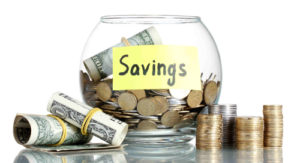Financial security is a big concern for those who are approaching or already retired. There is a lot of bad news when it comes to keeping your money safe long enough to survive. It can be overwhelming to do this on your own. You need to get a good financial adviser.

A Good Financial Adviser Knows These 10 Things
It can be hard to find one you can trust. Look for these ten things when talking to a financial advisor.
1. RIAs and IARs
You should really go to RIA, which is a Registered Investment Adviser. These are found in firms.
You can also try IARs, Investment Adviser Representatives, which are individual professionals.
These options give advice and ongoing help for a fee.
2. Financial Fiduciary
A fiduciary is a firm or a person who holds a position of trust. This is an important position, and it can impact when you retire. They will also help you with your money later in life.
Fiduciaries are held to the highest ethical standards in the financial service industry.
Only RIAs and IARs are financial fiduciaries. This is a great way to ensure you are protected.
3. Record of Compliance
A good financial advisor has a clean compliance record. If there is a complaint, it should be a frivolous one.
4. Financial Expertise
Make sure you pick someone who knows what they are doing. They should be able to prove their expertise through education, experience, and certifications.
5. Transparency
A good financial advisor will make sure to give you all the information you need so that you can make the right decision for yourself.
If you have to get information on your own, then it’s probably not the best fit.
6. Compensation
Financial advisors are compensated with fees like other professionals. You should be able to have a payment method that you and your advisor agree on.
You can pick from hourly, fixed, or asset-based.
7. Expenses
There can be additional fees other than the base one. Good financial advisors will tell you any additional costs that will be needed.
The trustfulness goes up when they explain what the expenses are, who gets the money, and what you get in return.
8. Track Records
Ask for documentation of past work that they have done. Don’t just rely on verbal performance numbers and references.
9. Communication
Make sure you have excellent communication with your advisor. This can mean reports, meetings, emails, and calls.
A quarterly performance report explains your results and is the critical type of written communication.
10. Financial Services
Good advisors give advice and services in all financial planning disciplines. This includes planning, investment, insurance, tax, and legal steps to help you with your financial goals.
Read more here.

